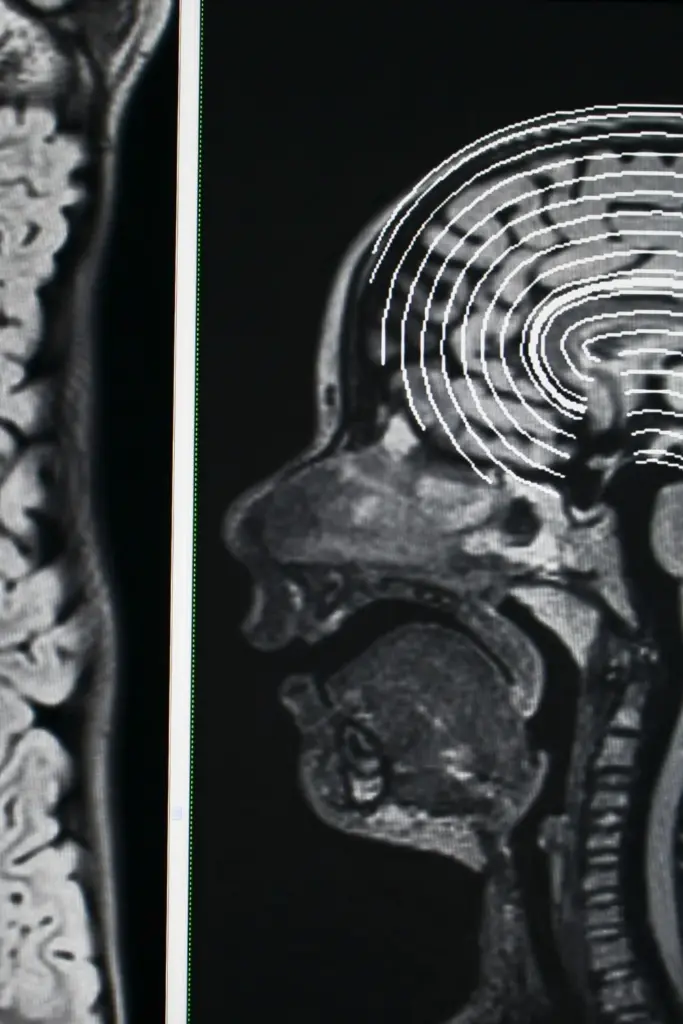Alcohol withdrawal seizures are not just a symptom of quitting drinking — they’re a loud, urgent alarm bell that your body is in distress and needs help.
For individuals struggling with alcohol addiction, the road to recovery can feel overwhelming, and the risks of withdrawal can feel like an insurmountable obstacle.
But here’s the good news: understanding the signs, symptoms, and treatment options for alcohol withdrawal seizures can save lives. Recovery is possible, and with the right support, it can be safe, too.
Do you or a loved one struggle with recovering from alcohol addiction? Our rehab in Midland, Texas is here to help. The Springboard Center provides lasting solutions and the support you need for your journey to recovery.
What Are Alcohol Withdrawal Seizures?
Experiencing an alcohol withdrawal seizure is a serious medical emergency that requires immediate attention.
Alcohol withdrawal seizures are one of the most severe complications of alcohol withdrawal syndrome (AWS). They occur when someone who has been drinking heavily for an extended period suddenly stops or significantly reduces their alcohol intake.
These seizures are typically generalized tonic-clonic seizures, meaning they involve sudden, uncontrollable muscle contractions and loss of consciousness. They can happen as early as six hours after the last drink but are most common within 24 to 48 hours.
The body’s reaction to alcohol during this withdrawal timeline is a result of the brain’s attempt to rebalance itself.
Chronic alcohol use suppresses the central nervous system, and when alcohol is removed, the brain becomes hyperactive, leading to symptoms like tremors, anxiety, and, in severe cases, seizures.
These alcohol withdrawal seizures are not only dangerous but can also be life-threatening if left untreated.
Related: How to Tell If Someone Is An Alcoholic
Causes and Triggers of Alcohol Withdrawal Seizures

If you’re thinking about quitting alcohol, especially after years of heavy drinking, it’s important to understand the causes and triggers of alcohol withdrawal seizures.
These seizures are caused by specific changes in your body and brain as you adjust to life without alcohol.
When you stop drinking, your body, which has grown used to the presence of alcohol, has to work hard to find its balance again. This adjustment can throw off normal brain activity, sometimes leading to seizures. Knowing what’s behind these seizures can help you take the right steps to quit alcohol safely and with confidence.
Sudden Alcohol Cessation
One of the primary triggers of alcohol withdrawal seizures is the abrupt cessation of alcohol consumption.
When alcohol use is stopped suddenly, the body, which has developed a dependency on alcohol to maintain normal functioning, experiences a state of shock.
This sudden shift can overwhelm your nervous system and lead to seizures. That’s why medical detox is so important — as it provides a controlled environment where the body can adjust more gradually and safely, reducing the risks involved.
Chemical Imbalance
Chronic alcohol use disrupts the delicate balance of neurotransmitters in the brain. Alcohol enhances the effects of GABA, a neurotransmitter that calms the nervous system while suppressing glutamate, which excites it.
Over time, the brain compensates by producing less GABA and more glutamate. When alcohol is removed, this imbalance causes the brain to become overexcited, leading to withdrawal symptoms like anxiety, tremors, and seizures.
Duration of Heavy Drinking
The longer someone has been drinking heavily, the greater their risk of experiencing withdrawal seizures.
Prolonged alcohol use causes more significant changes in the brain’s chemistry, making it harder for the body to adjust when alcohol is removed. Individuals with years of heavy drinking are particularly vulnerable and should never attempt to quit without medical supervision.
Previous Withdrawal History
A history of alcohol withdrawal symptoms, especially seizures, increases the likelihood of experiencing them again.
This phenomenon, known as “kindling,” means that each subsequent withdrawal episode can be more severe than the last.
If you’ve experienced withdrawal symptoms in the past, it’s so important to share this with your healthcare provider. They can use this information to create a detox plan that prioritizes your safety and well-being, giving you the support you need during this challenging time.
Related: How Do You Choose the Right Detox Model?
Early Warning Signs of Alcohol Withdrawal Seizures

Recognizing the early warning signs of an alcohol withdrawal seizure can make the difference between a manageable detox and a medical emergency. These symptoms often appear within hours of the last drink and can escalate quickly.
Tremors and Shaking
Tremors, or “the shakes,” are one of the first signs of alcohol withdrawal.
They typically begin within six to eight hours after the last drink and are caused by the nervous system’s overactivity. While tremors may seem minor at first, they can indicate that the body is struggling to adjust, and the risk of seizures may be increasing.
Heightened Anxiety
Anxiety is another common symptom of alcohol withdrawal.
As the brain adjusts to the absence of alcohol, it can become hyperactive, leading to feelings of restlessness, panic, and unease. Severe anxiety can exacerbate other withdrawal symptoms and increase the likelihood of seizures.
Sleep Disturbances
Insomnia, vivid dreams, and disrupted sleep patterns are early signs of alcohol withdrawal.
These disturbances can leave the body and mind feeling exhausted, which can worsen other symptoms and increase the risk of seizures. If sleep problems persist or worsen, it’s a sign that medical intervention may be needed.
Neurological Changes
Severe confusion, hallucinations, or seizures are emergency symptoms that require immediate medical attention.
These neurological changes can be a precursor to seizures and should be treated as a medical emergency. If you or someone you know experiences these symptoms, seek help immediately.
Witnessing a loved one struggle with alcohol withdrawal can be difficult. With Springboard Center’s Family Program, you can strengthen your role as a supportive family member with the hands-on therapy sessions. Build healthier relationships and gain the tools needed to support your loved one’s recovery while maintaining your own well-being.
Treatment Methods for Seizure Prevention
The good news is that alcohol withdrawal seizures are preventable with the right treatment and care.
Medical professionals can help manage withdrawal symptoms and reduce the risk of complications, ensuring a safer detox process.
Seizure prevention is a key focus of medical detox programs, which use evidence-based methods to manage withdrawal symptoms.
Medical Detoxification
Medical detox is the first step in recovery, providing a safe and supportive environment to manage withdrawal symptoms.
Medical detoxification is the safest and most effective way to manage alcohol withdrawal. During detox, healthcare providers monitor patients closely, providing medications and support to ease symptoms and prevent seizures.
At The Springboard Center, we offer individualized medical detox plans tailored to each patient’s needs, ensuring a safe and comfortable experience.
Related: Can You Force Someone to Go to Rehab? A Guide for Concerned Families
Anticonvulsant Medications
Anticonvulsant medications, such as carbamazepine or valproic acid, can be used to reduce the risk of seizures during alcohol withdrawal.
These medications work by stabilizing the brain’s electrical activity, preventing the sudden surges that cause seizures. They are typically prescribed as part of a comprehensive detox plan.
Benzodiazepine Therapy
Benzodiazepine treatment remains one of the most effective methods for preventing seizures and stabilizing the nervous system during alcohol withdrawal.
Benzodiazepines are a cornerstone of alcohol withdrawal treatment. These medications help calm the nervous system, reducing anxiety, tremors, and the risk of seizures.
However, they must be used under strict medical supervision to avoid dependency. At The Springboard Center, our medical team carefully monitors benzodiazepine use to ensure patient safety.
Continuous Monitoring
Continuous medical monitoring is essential during alcohol withdrawal, especially for individuals at high risk of seizures.
Many detox programs use the CIWA protocol, a clinical tool to assess and manage alcohol withdrawal symptoms effectively. This includes regular checks of vital signs, neurological assessments, and immediate intervention if complications arise.
Explore Long-term Recovery Planning at The Springboard Center
Detox is just the beginning of the recovery journey. To stay sober for the long term, it’s important to uncover the deeper reasons behind addiction and build a solid plan for the future. We focus on treating the whole person — mind, body, and spirit — to help you achieve lasting healing.
Our Residential Program provides a structured, supportive environment where patients can focus on their recovery. With individual, group, and gender-specific counseling, as well as chemical dependence education and relapse prevention classes, we help patients build the skills they need to maintain sobriety.
For those transitioning out of residential care, our Intensive Outpatient Program offers continued support and structure. This 10-week program combines evidence-based practices, such as the Matrix Model and 12-step principles, with 10 hours of weekly counseling to help patients stay on track.
Recovery is a journey that no one should face alone. Seeking professional help is essential to avoid life-threatening complications, such as an alcohol withdrawal seizure, during detox.
Take the first step today. Reach out to The Springboard Center and discover how we can help you or your loved one find hope, healing, and an even brighter future.




